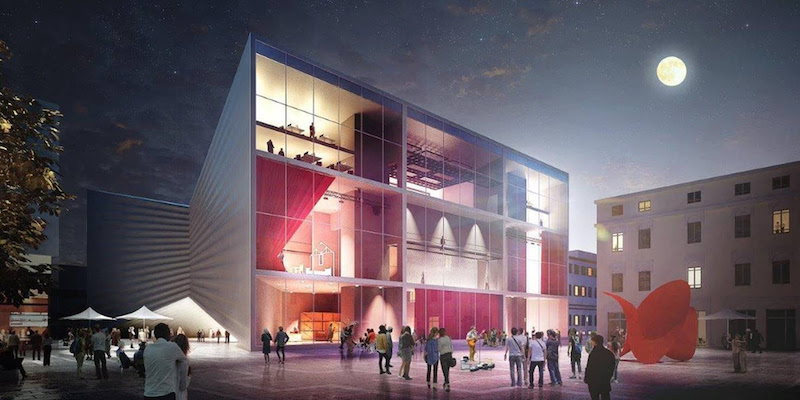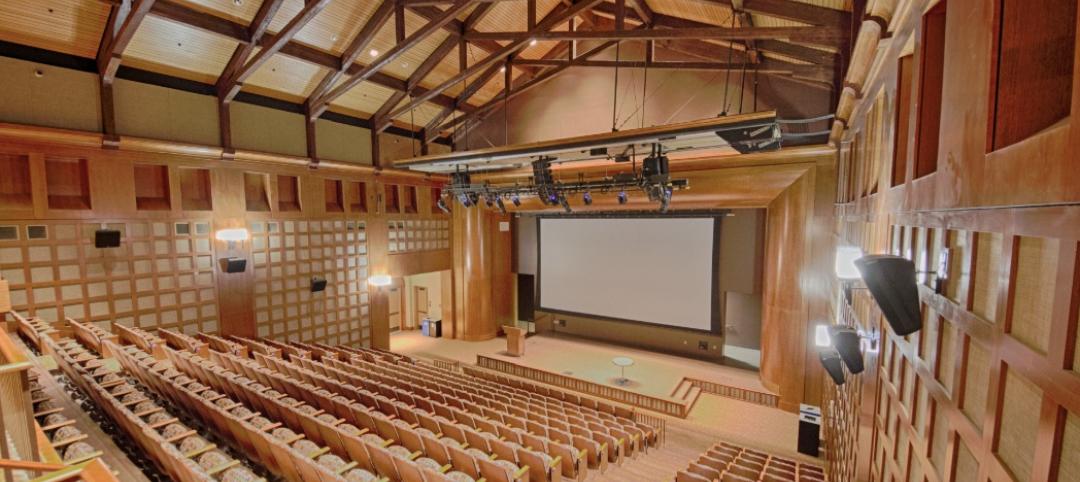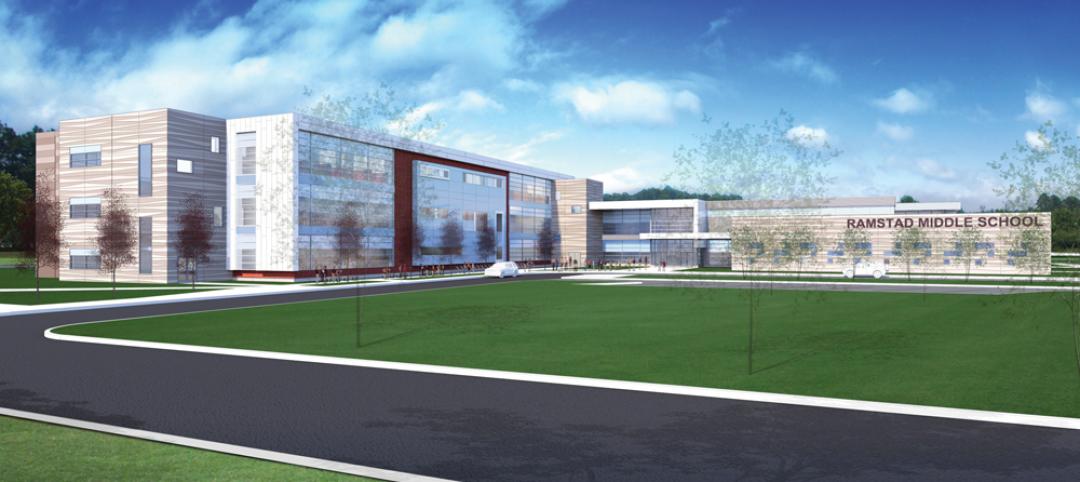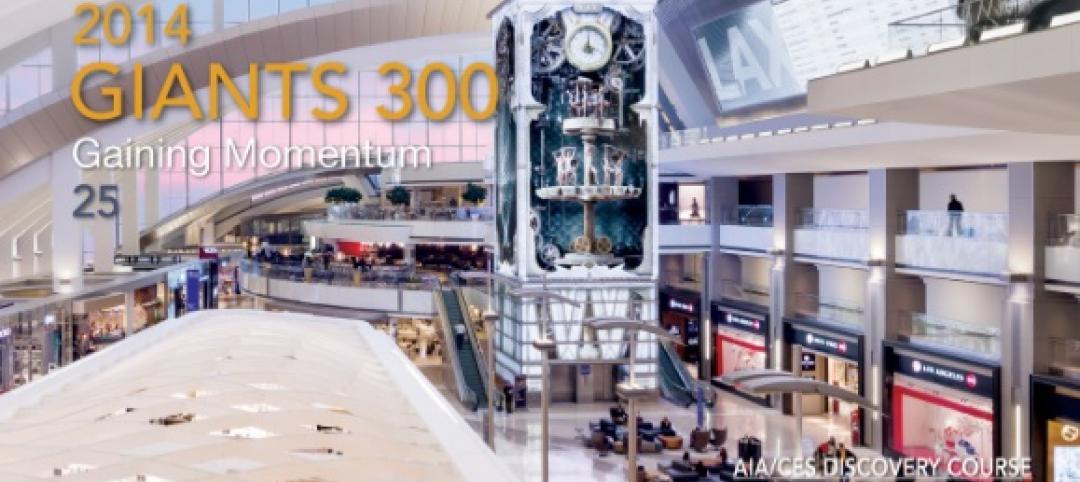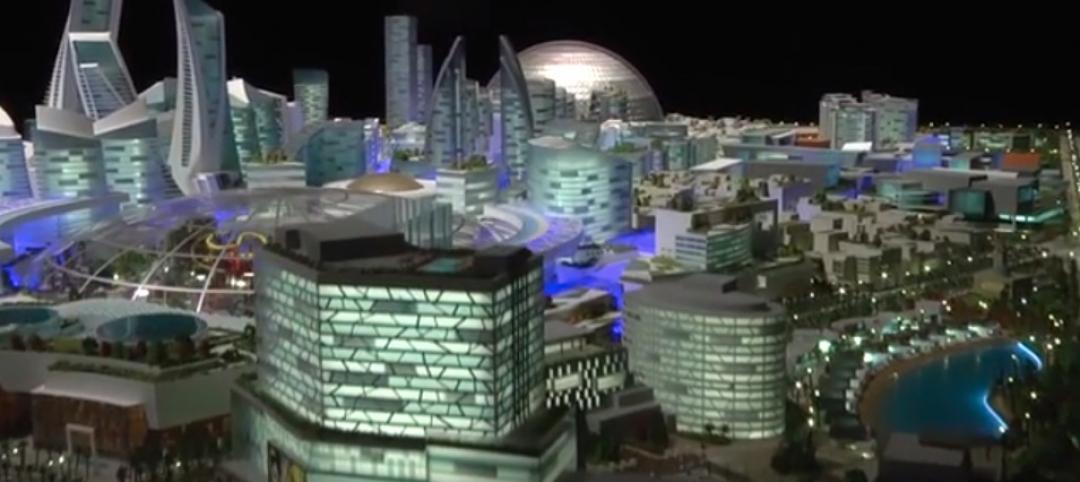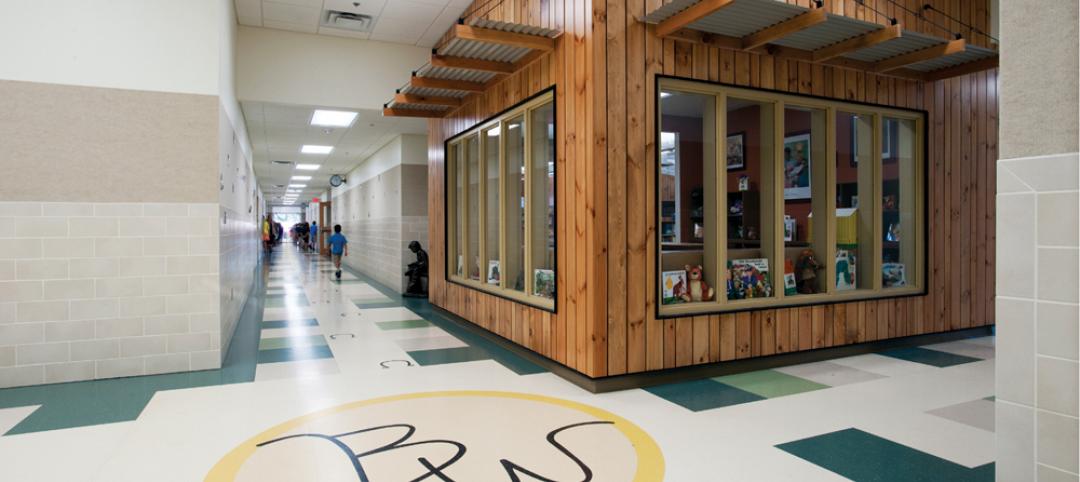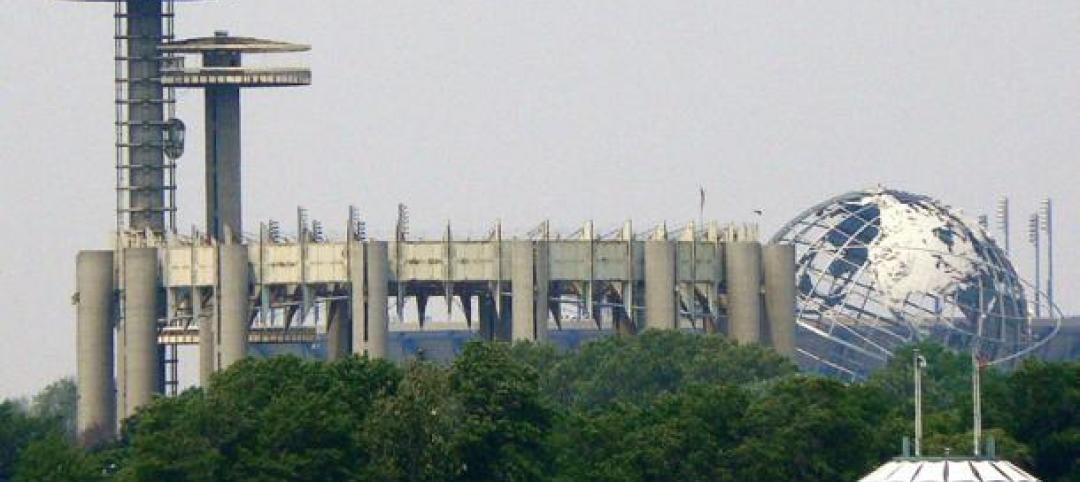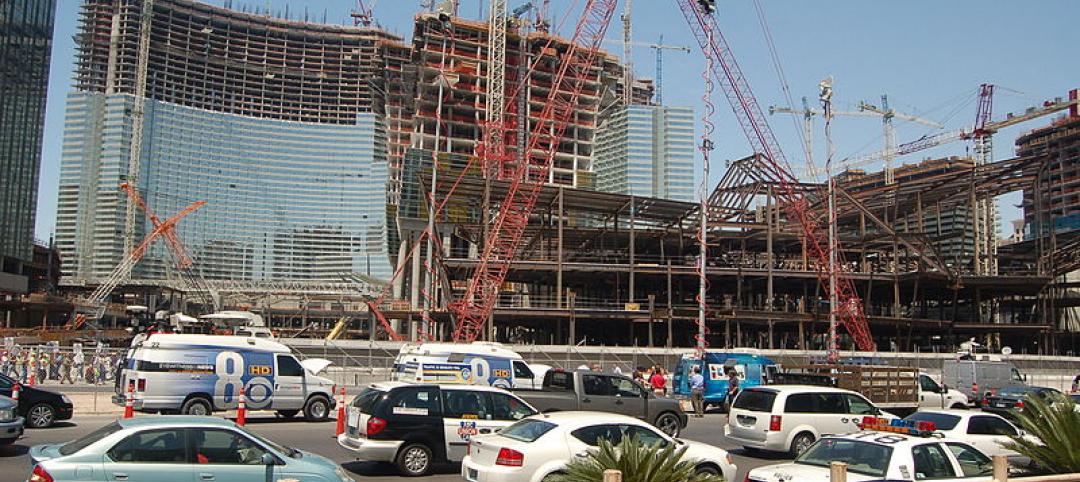Located in downtown Tirana, the National Theatre of Albania is a 9,300-sm venue designed to host local and touring theatre companies in the nation’s capital. The new facility sits adjacent to Skanderbeg Square, the National Opera, and the National Art Gallery.
In addition to replacing the existing theatre, the new National Theatre of Albania adds three new indoor performance spaces, a rooftop amphitheater, and a covered public space underneath the building. The public space is created via the building’s prism shape that is lifted at the center, which creates connections and public plazas on both sides of the theatre at street level. This public space can be used for impromptu performances or other cultural events.
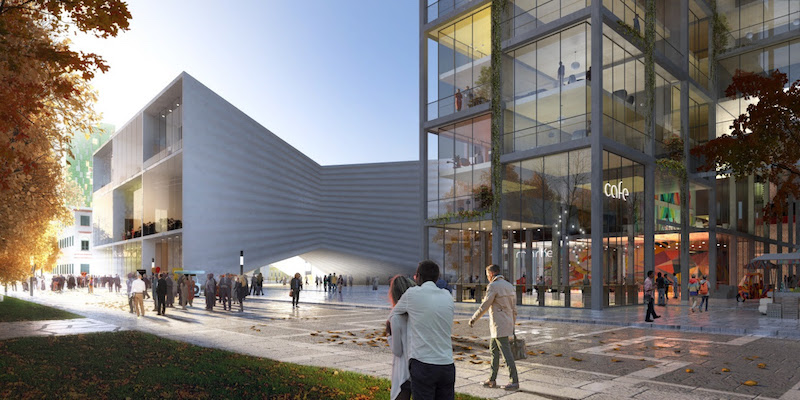 Rendering courtesy BIG.
Rendering courtesy BIG.
Immediately upon entering the building, guests will see two grand stairs that flank a ticket counter. The stairs lead up to the theatre foyer, the main auditorium, and the smaller black box performance spaces. The main auditorium is located in the middle of the bow tie shape, sandwiched by the front-of-house activities facing the south and the back-of-house activities and services to the north.
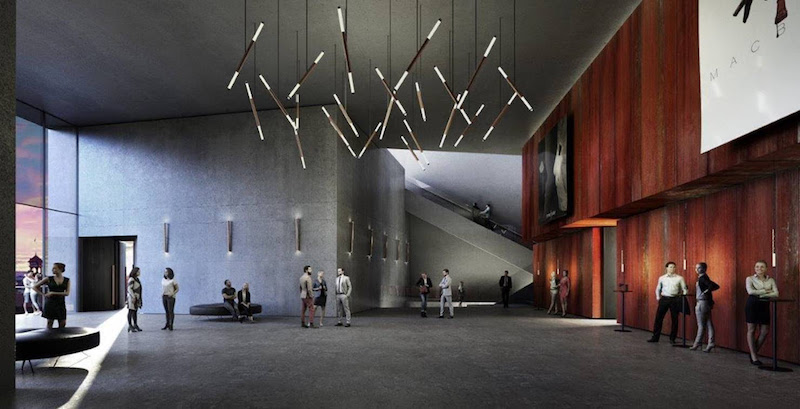 Rendering courtesy BIG.
Rendering courtesy BIG.
The facades on each side of the building (at the end of the bow tie) make use of abundant glass to reveal the interior program to passersby. “The two main facades of the National Theatre of Albania are opened up to expose the spaces inside the building to the public outside. One side reveals a foyer, lounge, bar and restaurant as well as two experimental stages to passersby, like rooms in a dollhouse,” says Bjarke Ingles in a release. “The other side reveals the entire section of the backstage, side stages, under stage and fly tower, exposing the entire theater machine to curious observers.”
The rooftop venue and café are also accessible to the public. The theater has a slight slope that creates an amphitheater-like space framed by the backdrop of the city.
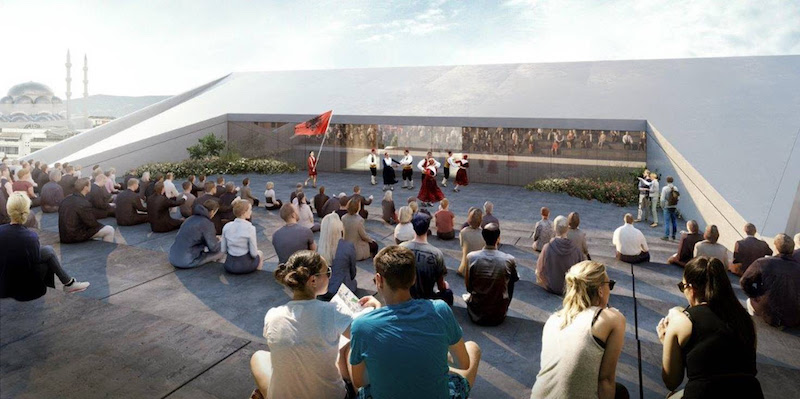 Rendering courtesy BIG.
Rendering courtesy BIG.
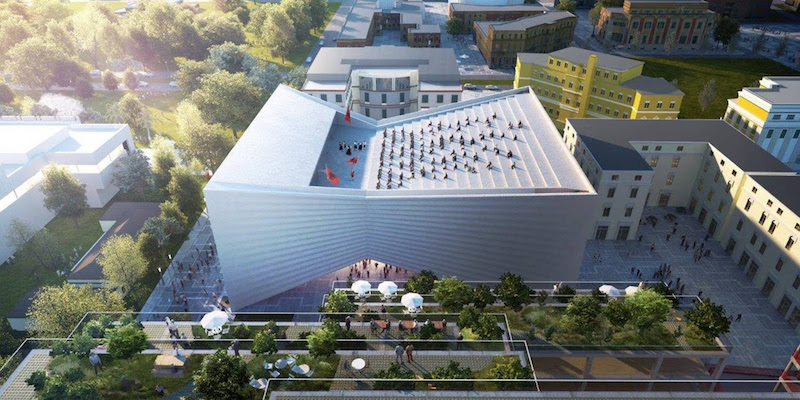 Rendering courtesy BIG.
Rendering courtesy BIG.
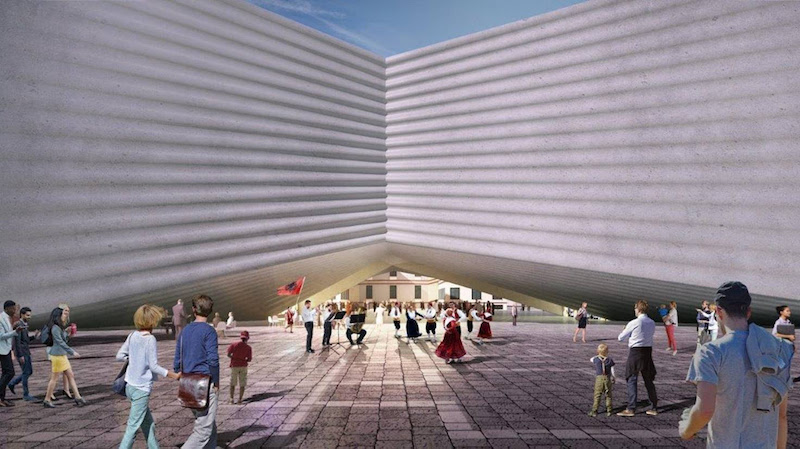 Rendering courtesy BIG.
Rendering courtesy BIG.
Related Stories
| Jul 18, 2014
Top Engineering Firms [2014 Giants 300 Report]
Fluor, Arup, Day & Zimmermann top Building Design+Construction's 2014 ranking of the largest engineering firms in the United States.
| Jul 18, 2014
Top Architecture Firms [2014 Giants 300 Report]
Gensler, Perkins+Will, NBBJ top Building Design+Construction's 2014 ranking of the largest architecture firms in the United States.
| Jul 18, 2014
2014 Giants 300 Report
Building Design+Construction magazine's annual ranking the nation's largest architecture, engineering, and construction firms in the U.S.
| Jul 7, 2014
7 emerging design trends in brick buildings
From wild architectural shapes to unique color blends and pattern arrangements, these projects demonstrate the design possibilities of brick.
| Jul 7, 2014
A climate-controlled city is Dubai's newest colossal project
To add to Dubai's already impressive portfolio of world's tallest tower and world's largest natural flower garden, Dubai Holding has plans to build the world's largest climate-controlled city.
| Jul 2, 2014
Emerging trends in commercial flooring
Rectangular tiles, digital graphic applications, the resurgence of terrazzo, and product transparency headline today’s commercial flooring trends.
| Jun 30, 2014
Philip Johnson’s iconic World's Fair 'Tent of Tomorrow' to receive much needed restoration funding
A neglected Queens landmark that once reflected the "excitement and hopefulness" at the beginning of the Space Age may soon be restored.
| Jun 30, 2014
Research finds continued growth of design-build throughout United States
New research findings indicate that for the first time more than half of projects above $10 million are being completed through design-build project delivery.
| Jun 18, 2014
Arup uses 3D printing to fabricate one-of-a-kind structural steel components
The firm's research shows that 3D printing has the potential to reduce costs, cut waste, and slash the carbon footprint of the construction sector.
| Jun 16, 2014
6 U.S. cities at the forefront of innovation districts
A new Brookings Institution study records the emergence of “competitive places that are also cool spaces.”


